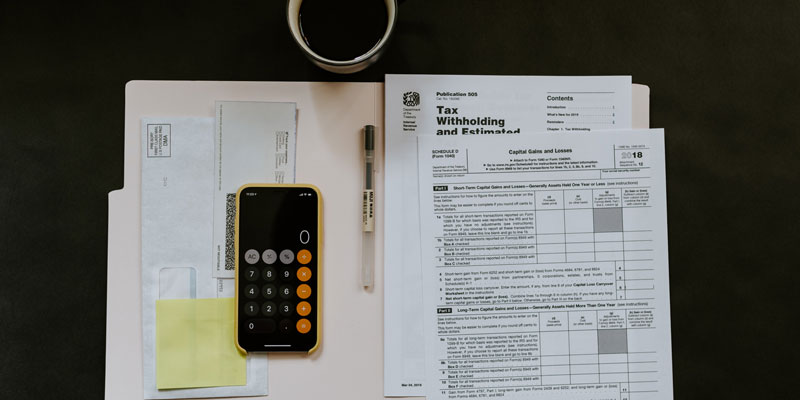Key Takeaways from South Africa's Finance Minister’s Latest Budget
Nov 13, 2024 By Georgia Vincent
South Africa's financial landscape is undergoing significant changes, driven by the recent budget update unveiled by the Finance Minister. This update comes at a crucial time as the nation grapples with economic challenges and seeks pathways to sustainable growth.
The budget contains strategic fiscal policies aimed at stabilizing the economy, addressing debt concerns, and fostering an environment conducive to development. In this article, we will examine the budget's key highlights, including its impact on sectors, the government's taxation approach, and the economic outlook for South Africa at large.
Fiscal Consolidation and Debt Management
The core of the budget update by the Finance Minister focuses on fiscal consolidation. It has been handling a rather serious budget deficit as a nation, primarily on account of the increase in national debt. The strategy for dealing with debt growth is solid in the form of strict spending and additional revenue accruals in the budget. By putting debt reduction first, it will enable the government to free the resources that may be ploughed back into the use of health services, educational services, and infrastructure creation.
The strategy is actually a detailed review of public spending, where they identify areas that could easily alleviate costs without compromising on the essentials. This includes going over subsidies, optimizing public sector wages, and managing each sector's efficiency. This type of control on expenditure prevents the deficit from rising, thus improving the fiscal well-being of the country and creating much better confidence for investors.
Revenue Generation and Tax Reforms
South Africa's Finance Minister unveiled measures to boost revenue generation and tax reforms to tackle the budget deficit and ensure economic stability.
Tax Policy Adjustments
The government shall adjust taxes by not offering inflation updates on personal income tax brackets. These will help to smoothen the tax system and collect the highest revenue without placing a burden on taxpayers.
Implementation of the Two-Pot Retirement System

Starting in September 2024, the two-pot retirement system will allow individuals to access one-third of their retirement contributions, enhancing financial flexibility. This reform aims to alleviate immediate financial pressures while ensuring long-term retirement security for South Africans.
Wealth Tax Considerations
The government is exploring a wealth tax to address income inequality and generate additional revenue. This proposal targets wealthier individuals and corporations, promoting a fairer tax system and increasing resources for essential social programs and infrastructure investments.
Support for Small and Medium Enterprises (SMEs)
The budget proposes tax relief, grants, and improved access to credit to support SMEs. These initiatives aim to stimulate entrepreneurship and drive economic growth at the grassroots level, recognizing the crucial role SMEs play in job creation.
Enhancement of Tax Compliance
The government plans to enhance tax compliance by strengthening enforcement mechanisms and utilizing technology to reduce tax evasion. These efforts aim to broaden the tax base, ensuring all taxpayers contribute their fair share while maximizing revenue efficiency.
Social Spending and Economic Development
The Finance Minister's budget update highlights the need for fiscal restraint while emphasizing robust social spending to ensure long-term economic stability and address systemic inequalities.
Investment in Education
Education is a key focus of South Africa's budget, with significant resources allocated to enhance quality and access. Initiatives include funding for school infrastructure, expanding early childhood education, and providing scholarships for underprivileged students. Emphasizing vocational training and skills development, the government aims to equip youth for the job market. These investments not only enhance individual prospects but also foster a competent workforce essential for economic growth and stability.
Healthcare Initiatives
Healthcare receives substantial funding in the budget, reflecting a commitment to improving public health outcomes. The government aims to enhance healthcare infrastructure, service delivery, and access to essential medicines. Investments focus on strengthening the National Health Insurance (NHI) system to provide universal coverage. By addressing healthcare disparities, the budget seeks to improve overall population health, which is crucial for enhancing productivity and supporting sustainable economic development.
Infrastructure Development

Infrastructure development is vital for economic growth, with the budget outlining significant investments in transport, energy, and telecommunications. Improved roads, railways, and ports enhance supply chain efficiency and reduce business costs. Additionally, investments in energy aim to combat power shortages and load shedding. By expanding digital infrastructure, the government seeks to empower businesses and promote innovation, ultimately facilitating broader economic participation, particularly in underserved areas.
Social Safety Nets and Support Programs
The budget prioritizes social safety nets to support vulnerable populations, including the elderly and low-income families. Expanding social grants and support mechanisms aims to alleviate poverty and promote stability. The government is also integrating skills training with financial assistance, enabling beneficiaries to gain employment and achieve independence. This approach seeks to break the cycle of poverty, ensuring that all citizens have the opportunity to contribute to South Africa's economic progress.
Economic Outlook and Future Prospects
The Finance Ministers budget update presents a cautiously optimistic view of South Africas economic future. It acknowledges challenges like high unemployment and external pressures while outlining a roadmap for gradual recovery and growth. Emphasizing fiscal responsibility and strategic investments, the budget aims to foster a stable economic environment.
Additionally, structural reforms are essential for enhancing resilience, improving the business climate, attracting foreign investment, and encouraging innovation. Social inclusion and equitable growth are also prioritized, with policies supporting marginalized communities, gender equality, and youth employment. These initiatives aim to create a more inclusive society and ensure that economic benefits are shared broadly.
Conclusion
South Africa's latest budget update reflects a strategic approach to navigating economic challenges while laying the groundwork for future growth. The Finance Ministers focus on fiscal consolidation, revenue generation, and targeted social spending underscores a commitment to building a resilient and inclusive economy. By balancing austerity measures with investments in critical sectors, the government aims to stabilize the fiscal landscape and create opportunities for sustainable development. As South Africa moves forward, the success of these budgetary measures will play a crucial role in shaping the nation's economic trajectory and improving the lives of its citizens.
How Currency Swaps Help Businesses Hedge Against FX Risk

Self-employment Tax 2022 (Social Security and Medicare Taxes)

Small Business Owners vs. Self-Employed: Everything You Need to Know

The Truth Behind Days to Cover and Short Interest: A Simple Guide
Key Takeaways from South Africa's Finance Minister’s Latest Budget

Conforming Loan Limit

Exploring Different Types of Office Audits: Which One Is Right for You?

What Is Subordinated Debt And What Are the Possible Consequences?

Understanding Better vs. Guaranteed Rate Mortgages

